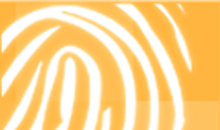Current events
News
Just ten years after it was created, Wikipedia has become the sixth most visited site on the web and one of the most active online communities. More than a simple encyclopaedia, Wikipedia is an example of mass online collaboration. The new edition of the journal Digithum, published by the UOC's Arts and Humanities department, aims to contribute to the incipient scientific literature on Wikipedia with articles about aspects little dealt with to date.
Digithum. The humanities in the digital age is an electronic publication produced by the UOC. For the last fourteen years, it has analysed the impact of information and communication technologies on all areas related with the humanities and social sciences. In this new edition, the focus of study has been Wikipedia, one of the most important open repositories of knowledge in history. The five articles in the dossier Academic Research into Wikipedia highlight the depth and multiplicity of the social and cultural impacts of this platform.
Fundamental principles of Wikipedia
One of the principal characteristics of Wikipedia is that any web user may publish or edit content, and one of its cornerstones is neutrality. The article The truth of Wikipedia, by Nathaniel Tkacz, analyses the practical and epistemological implications of this guiding principle, relating it with a specific concept of truth.
The collaborative spirit
Wikipedia forms part of a very broad network of projects that share the same collaborative working philosophy, the ultimate aim of which is to generate free knowledge that is available to everyone. In his article Panorama of the wikimediasphere, David Gómez analyses the technical, regulatory, social and institutional dimension of these wiki communities, one of which is Wikipedia.
One of the projects spawned by this collaborative philosophy is Wiki Loves Monuments, a pan-European photography competition which aims to raise awareness of all the monuments that form part of Europe's cultural heritage. The article by Emilio José Rodriguez et al. highlights the relevance of initiatives such as this one to cultural and heritage outreach.
Applications of Wikipedia
The way in which Wikipedia content is structured and distributed facilitates the development of specific applications and tools for linguists, teachers, researchers, translators, etc. The article by Antoni Oliver and Salvador Climent looks at the use of Wikipedia within the framework of cutting-edge research into natural language processing (NLP) and the creation of linguistic resources. In relation to this latter aspect, the authors present Wordnet 3.0 for Catalan and Spanish, which has become a standard resource for semantic processing.
Wikipedia and the commercial world
In the article which opens the dossier, Marcia W. DiStaso and Marcus Messner offer an insight into the impact of Wikipedia on corporate reputation. Focusing their study on the companies with the best and worst reputations in the USA, the authors analyse differences in the content published on Wikipedia, in order to determine what influence this content has on shaping corporate reputation.
About Digithum
Published by the Arts and Humanities Department, Digithum is the UOC's longest running journal. Every year for the last fourteen years, articles related with the humanities, social sciences, and information and communication technologies have been published in digital format. Between January 2011 and May 2012, the journal received more than 80,000 visits from 45,361 individual users and 743 subscribers.
This latest edition sees a new development; from now on, the journal will focus exclusively on a monographic theme. This particular issue has been coordinated by Eduard Aibar, an arts and humanities lecturer at the UOC, and Mayo Fuster, researcher at the Institute of Government and Public Policy at the Autonomous University of Barcelona (UAB).




